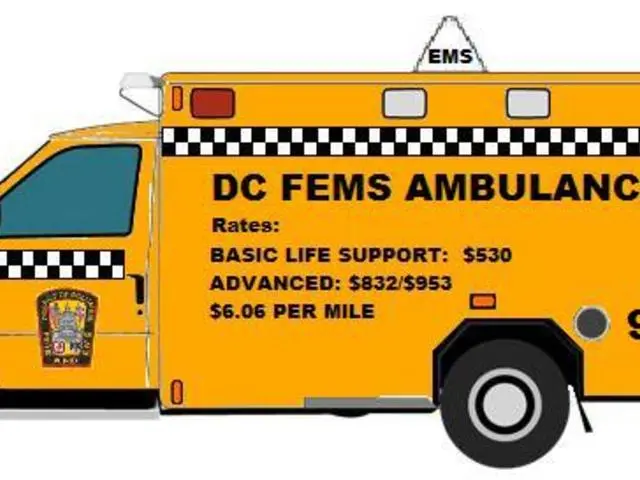E-Scooter Accidents: A 3-Year Evaluation - Late Nights, Weekends, and Alcohol
Incidents involving E-scooters commonly occur during the night hours and on weekends. - Persistent incidents occurring late at night and during weekends.
E-Scooter accidents resulting in severe injuries in Germany have clear patterns: they occur most frequently at night and on weekends, with men being the majority victims, and often under the influence of alcohol. This is the conclusion from a study analyzing e-scooter accidents data in Germany over the past 3 years.
According to the team led by Michael Zyskowski from the Trauma Surgery Clinic at the Technical University of Munich (TUM), a total of 538 severely injured individuals due to E-Scooter accidents were recorded in the German Society for Trauma Surgery's trauma registry since 2020. Over 83% of them were treated in intensive care units, and 26 people died.
Alcohol involvement was common
The study team found that E-Scooter riders more frequently suffered from head injuries compared to cyclists and other road users. Out of the ten most common injuries, 8 affected the head or face.
Disturbingly, 54% of the accidents happened at night, with half occurring on weekends. Concerningly, 62% of the severely injured E-Scooter riders tested positive for alcohol in their system. In 35% of cases, the alcohol level exceeded the legal limit.
Men in the majority
The average age of those injured was around 44 years, lower than the 55-year average for similarly severe bicycle accidents. Moreover, 78% of the injured were male.
Michael Zyskowski commented, "Men, especially younger ones, are much more frequently affected when comparing the data with information on accidents involving bicycles, cars, or pedestrians."
Researchers advise specific safety measures
The research team advises for targeted safety measures to reduce the number of severe e-scooter accidents. For example, the introduction of a helmet requirement for e-scooters in Australia has successfully reduced injuries. In Oslo, nighttime driving bans for e-scooters were introduced from 23 to 5 pm. In Helsinki, the maximum speed for e-scooters was reduced to 15 km/h on weekends.
The team's research emphasizes that shared e-scooters are suitable for specific safety measures. As providers have digital control over the devices, they could take action to improve traffic safety:
- Restricting scooter availability at night and accident hotspots
- Reducing maximum speed after a certain time
- Conducting reaction tests during the rental process to minimize alcohol-related accidents
Safety Measures and Recommendations
- Speed Limitations: Analyze the feasibility of reducing top e-scooter speeds during specific hours, particularly at night or in high-risk areas.
- Nighttime Operations: Investigate the effectiveness of restricting scooter availability at night due to the high incidence of accidents during this time.
- Weekend Safety: Enhance vigilance and adherence to safety rules during weekends when accidents are most likely to occur.
- Alcohol Consumption: Strictly enforce the prohibition of alcohol consumption while riding e-scooters, with the same blood alcohol content limit as driving a car.
- Use of Safety Equipment: Encourage the use of helmets and improved visibility for e-scooters to reduce accidents.
- Regulatory Compliance: Ensure e-scooters comply with safety standards, holding certification such as the ABE certificate.
- Traffic Rules: Encourage e-scooter riders to use bike lanes or roads, observing traffic lights and using pedestrian crossings whenever necessary.
- The research team suggests reducing the top speeds of e-scooters during specific hours, particularly at night or in high-risk areas, as a safety measure to limit severe accidents.
- Strict enforcement of the prohibition of alcohol consumption while riding e-scooters could be implemented, with the same blood alcohol content limit as driving a car, to minimize accidents related to alcohol consumption.
- Encouraging the use of helmets and improved visibility for e-scooters is recommended to reduce accidents among riders.
- To improve traffic safety, e-scooter providers could conduct reaction tests during the rental process, aiming to minimize alcohol-related accidents, while also restricting scooter availability at night and accident hotspots.








